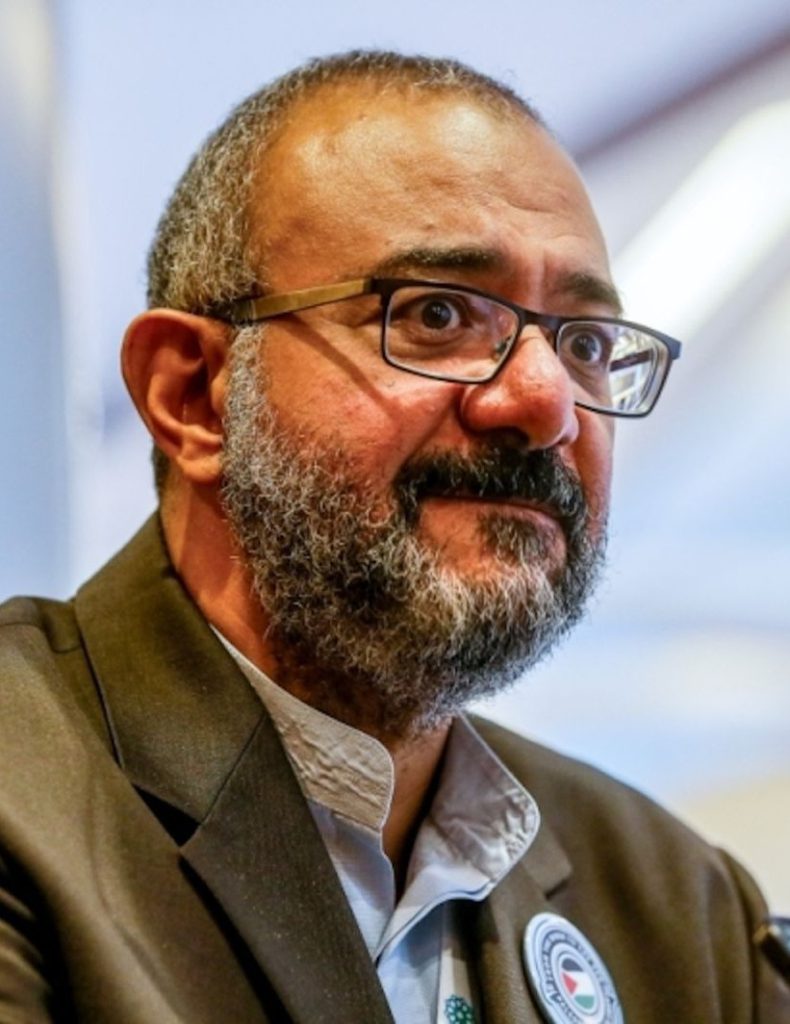Dr. Jasser Auda
د. جاسر عودة
Professor Fellow, ISTAC-IIUM
أستاذ زميل بمعهد الحضارة الإسلامية بالجامعة الإسلامية العالمية بماليزيا

The Dangers of AI Systems and the Obligation on the Ummah to create alternatives
مخاطر نظم الذكاء الاصطناعي وواجب الأمة في إيجاد بدائل
Sound judgment on any issue requires first a proper understanding, and thus it becomes essential to accurately conceptualize the principles and mechanisms of Artificial Intelligence (AI). A fundamental question arises: can machines truly be considered intelligent? What is the essence of intelligence? And how do these technologies actually function in terms of machine learning and data training?
Although many AI applications are offered for free, the companies that produce them have grown into some of the largest global corporations, with their founders becoming billionaires. This raises serious questions about the economic and political structures behind the industry, and how human interaction and data are transformed into enormous wealth.
The risks of AI extend far beyond technical dimensions to include military, political, economic, educational, health, cultural, media, and psychological aspects—particularly with the dominance of training systems and control mechanisms over today’s communication environments. This compels us to ask: to what extent is the use of AI compatible with the values and principles of the Ummah? More specifically, is it permissible to rely on AI systems in matters of religion, such as the Qur’an, Sunnah, and Islamic rulings?
At the same time, opportunities exist for Muslim researchers to benefit from these tools in advancing scientific inquiry across disciplines—provided they possess critical awareness and the ability to direct these technologies toward beneficial purposes without compromising core values. Responsibility in this regard is shared among individual Muslim technologists, companies operating in the field, and states striving to safeguard their digital sovereignty.
The Ummah today is called not only to recognize these risks, but also to actively work toward building independent technological alternatives that reinforce knowledge sovereignty and ensure the security and well-being of future generations.
إن الحكم على أي قضية يستلزم أولاً تصورها تصوراً صحيحاً، ومن هنا تبرز ضرورة تكوين فهم دقيق لمفاهيم الذكاء الاصطناعي وتقنياته. فهل الآلة تُعدّ ذكية حقاً؟ وما هو الذكاء في جوهره؟ وكيف تعمل هذه التقنيات من حيث المبدأ في مجالات التعلم الآلي والتدريب على البيانات؟
ورغم أن كثيراً من تطبيقات الذكاء الاصطناعي متاحة مجاناً للاستخدام، إلا أن الشركات المنتجة لها أصبحت من كبريات المؤسسات العالمية، وأصحابها من أصحاب المليارات. وهذا يثير تساؤلات حول البنية الاقتصادية والسياسية التي تقوم عليها هذه الصناعة، وكيف يتم تحويل البيانات والتفاعل البشري إلى ثروات هائلة.
تتجاوز المخاطر المحتملة للذكاء الاصطناعي الجانب التقني لتشمل أبعاداً عسكرية وسياسية واقتصادية وتعليمية وصحية وثقافية وإعلامية ونفسية، خصوصاً مع هيمنة منظومات التدريب والتحكم على فضاءات الاتصال الحالية. وهذا يفرض ضرورة النظر في مدى توافق استخدام هذه التقنيات مع ثوابت الأمة وقيمها، بل وطرح سؤال جوهري: هل يجوز الاعتماد على نظم الذكاء الاصطناعي في مسائل الدين، كالقرآن والسنة والأحكام الشرعية؟
وفي المقابل، يظل الباب مفتوحاً أمام الباحث المسلم ليستثمر هذه الأدوات في خدمة البحث العلمي في مختلف التخصصات، بشرط أن يملك الوعي النقدي والقدرة على توجيهها بما يحقق المصلحة ولا يفرط بالثوابت. كما أن المسؤولية موزعة بين الأفراد المتخصصين في التقنية، والشركات العاملة في المجال، والدول الساعية لحماية أمنها واستقلالها الرقمي.
إن الأمة مطالبة اليوم ليس فقط بفهم هذه المخاطر، بل بالعمل على بناء بدائل تقنية مستقلة تعزز سيادتها المعرفية وتضمن سلامة أجيالها القادمة.
Biography
السيرة الذاتية
Dr. Jasser Auda is a leading scholar in the contemporary Maqasid (Objectives of Islamic Law) school of thought. He has a multidisciplinary academic background, has been a member of several Islamic scholarly councils, and has contributed to the establishment of various educational and da’wah institutions across different countries. He worked as a professor, lecturer, and researcher in numerous universities around the world and has lectured globally on Islam, its law and objectives. Additionally, he has authored numerous books and research papers, many of which have been translated into many languages. Since 1440 AH / 2019 CE, he has been working on an eight-volume Tafsir/Commentary of the Qur’an titled Tafsir Maqasidi (Objectives-Based Exegesis), of which he published 6 volumes in an experimental edition in 2025.
الأستاذ الدكتور جاسر عودة من رواد المدرسة المقاصدية المعاصرة، له خلفية علمية متعددة التخصصات، وشارك في عضوية عدد من المجامع الفقهية، وساهم في تأسيس عدد من المؤسسات العلمية والدعوية في عدد من البلدان، وكان أستاذًا محاضرًا أو باحثًا في عدد من الجامعات في بلاد مختلفة، ومحاضرًا عن الإسلام وشريعته ومقاصده حول العالم، وقد كتب عددًا من الكتب والأبحاث نُشر بعضها بلغات كثيرة، وأخيرًا، يعكف منذ ١٤٤٠ هـ / ٢٠١٩ م على كتابة: (التفسير المقاصدي) للقرآن الكريم في ثمانية أجزاء نشر منه ستة أجزاء في طبعة تجريبية عام ٢٠٢٥.
